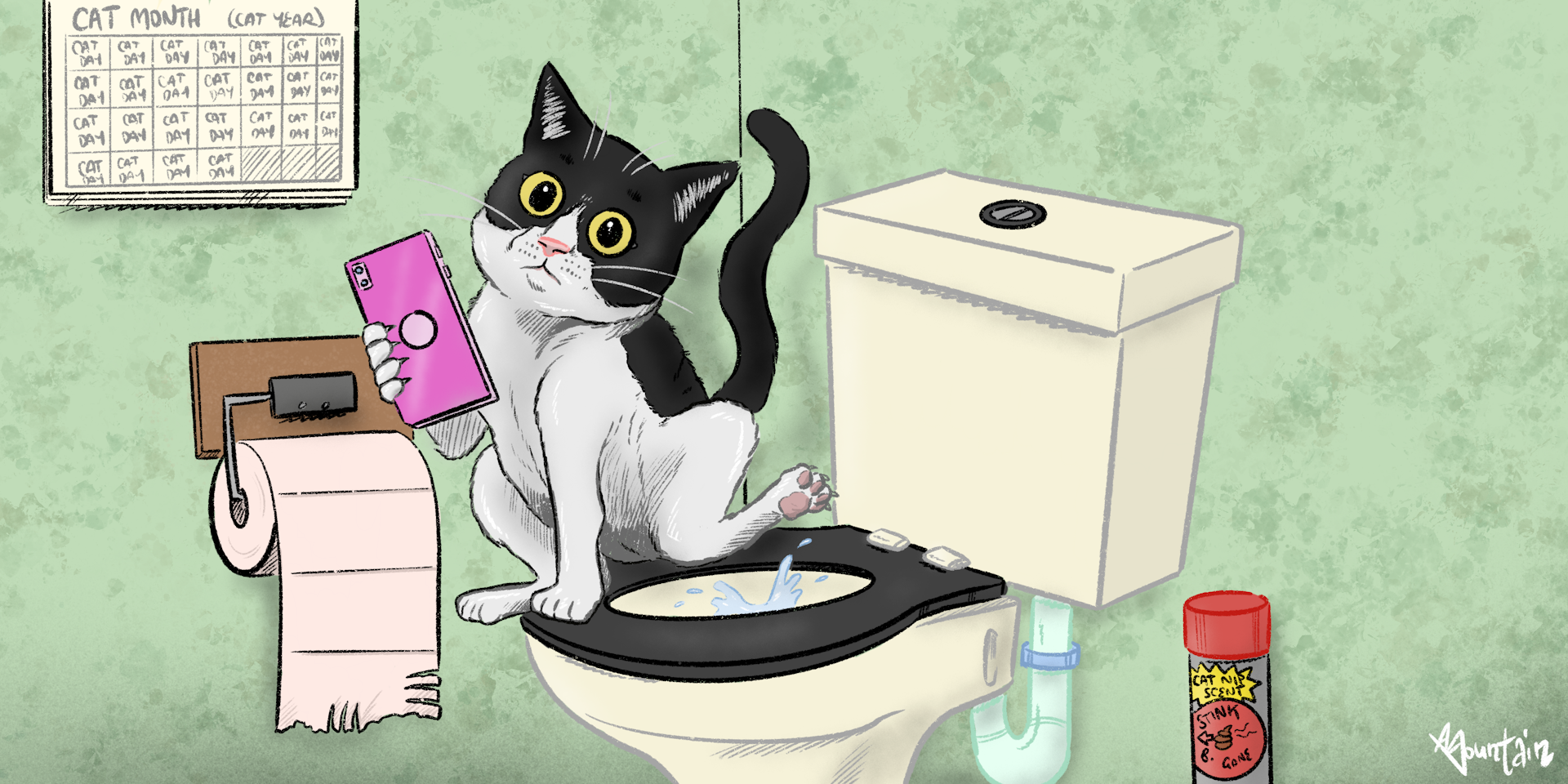Why You Mustn't Flush Cat Poop Down Your Toilet - Maintain Your Pipe Health
Why You Mustn't Flush Cat Poop Down Your Toilet - Maintain Your Pipe Health
Blog Article
The content listed below in relation to How to Dispose of Cat Poop and Litter Without Plastic Bags is indeed interesting. Read on and make your own personal findings.

Intro
As pet cat proprietors, it's important to bear in mind just how we dispose of our feline pals' waste. While it may seem convenient to flush feline poop down the commode, this technique can have detrimental consequences for both the environment and human health and wellness.
Environmental Impact
Flushing cat poop introduces dangerous virus and bloodsuckers right into the water, posturing a significant risk to aquatic ecosystems. These impurities can adversely influence aquatic life and concession water high quality.
Wellness Risks
Along with ecological worries, purging feline waste can also position wellness dangers to people. Feline feces may contain Toxoplasma gondii, a parasite that can cause toxoplasmosis-- a possibly extreme health problem, especially for pregnant females and people with weakened immune systems.
Alternatives to Flushing
Fortunately, there are more secure and much more responsible means to take care of feline poop. Think about the complying with choices:
1. Scoop and Dispose in Trash
The most common approach of throwing away feline poop is to scoop it into an eco-friendly bag and throw it in the trash. Make certain to utilize a devoted clutter inside story and deal with the waste promptly.
2. Usage Biodegradable Litter
Choose eco-friendly feline litter made from materials such as corn or wheat. These clutters are environmentally friendly and can be securely thrown away in the trash.
3. Hide in the Yard
If you have a yard, take into consideration burying pet cat waste in an assigned location away from veggie gardens and water resources. Make sure to dig deep sufficient to prevent contamination of groundwater.
4. Set Up a Pet Waste Disposal System
Invest in a pet dog waste disposal system especially developed for pet cat waste. These systems utilize enzymes to break down the waste, lowering odor and ecological effect.
Conclusion
Accountable pet ownership expands beyond supplying food and sanctuary-- it also involves correct waste management. By refraining from purging cat poop down the toilet and selecting different disposal techniques, we can lessen our environmental footprint and safeguard human wellness.
Why You Should Never Flush Cat Poop Down the Toilet
A rose by any other name might smell as sweet, but not all poop is created equal. Toilets, and our sewage systems, are designed for human excrement, not animal waste. It might seem like it couldn’t hurt to toss cat feces into the loo, but it’s not a good idea to flush cat poop in the toilet.
First and foremost, assuming your cat uses a litter box, any waste is going to have litter on it. And even the smallest amount of litter can wreak havoc on plumbing.
Over time, small amounts build up, filling up your septic system. Most litter sold today is clumping; it is made from a type of clay that hardens when it gets wet. Ever tried to scrape old clumps from the bottom of a litter box? You know just how cement-hard it can get!
Now imagine just a small clump of that stuck in your pipes. A simple de-clogger like Drano isn’t going to cut it. And that means it’s going to cost you big time to fix it.
Parasitic Contamination
Believe it or not, your healthy kitty may be harboring a nasty parasite. Only cats excrete Toxoplasma in their feces. Yet it rarely causes serious health issues in the cats that are infected. Most people will be fine too if infected. Only pregnant women and people with compromised immune systems are at risk. (If you’ve ever heard how women who are expecting are excused from litter cleaning duty, Toxoplasma is why.)
But other animals may have a problem if infected with the parasite. And human water treatment systems aren’t designed to handle it. As a result, the systems don’t remove the parasite before discharging wastewater into local waterways. Fish, shellfish, and other marine life — otters in particular — are susceptible to toxoplasma. If exposed, most will end up with brain damage and many will die.
Depending on the species of fish, they may end up on someone’s fish hook and, ultimately on someone’s dinner plate. If that someone has a chronic illness, they’re at risk.
Skip the Toilet Training
We know there are folks out there who like to toilet train their cats. And we give them props, it takes a lot of work. But thanks to the toxoplasma, it’s not a good idea.

We were guided to that write-up about Don’t flush cat feces down the toilet through an associate on our other web page. Enjoyed our article? Please share it. Help other people locate it. Thanks for your time. Please come visit our site back soon.
Call Today Report this page